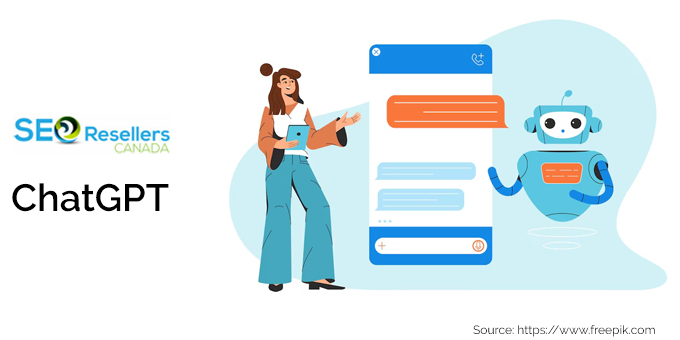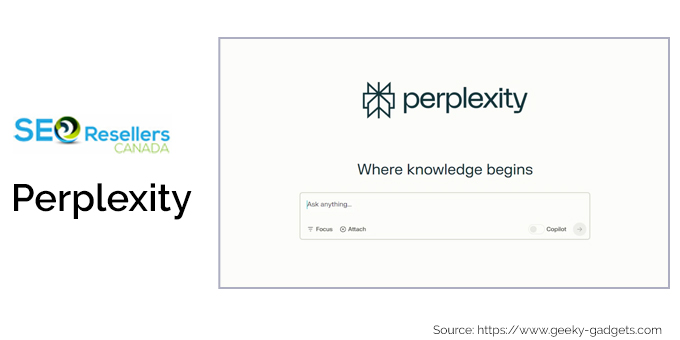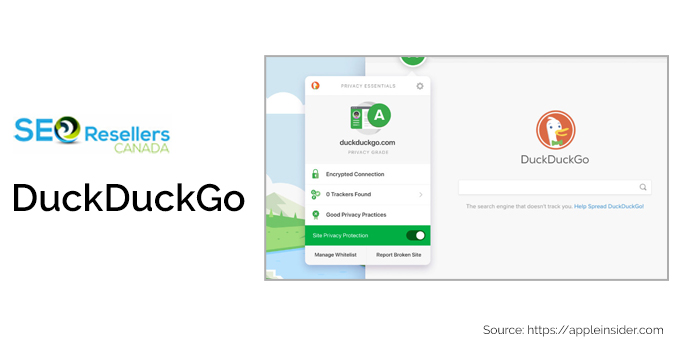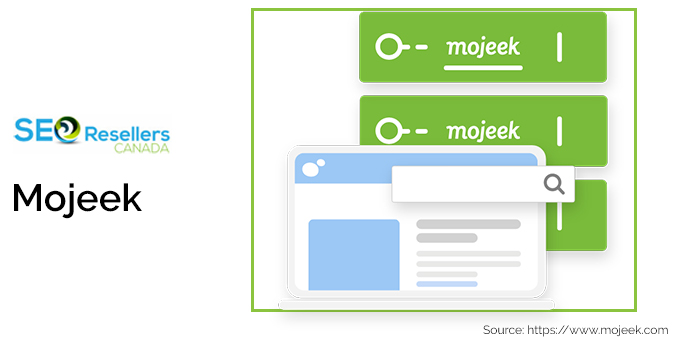Whenever we think of going online and searching for something that piques our interest, it may seem like Google is the only option. However, google is not your only option! Increasingly, people are considering alternatives for better privacy, to support a good cause, or just to shake things up.
While Google has around 90% of the global search market, many great alternatives are available with unique features and benefits. There are some who look after your data safety, some who plant trees or sweep oceans, and some who use AI to give you direct answers instead of links.
So, to give you more clarity, below is a well-structured list of the best Google alternatives. This will help you find the one that meets your needs. So, Let’s explore these alternatives!
1- AI-Driven Search Engines

Artificial intelligence helps AI search engines provide direct answers rather than links. This is a more personal and efficient way of searching using advanced technology.
1.1- ChatGPT

ChatGPT is an advanced AI chatbot that has natural and engaging conversations. It uses language models to deliver precise answers. It uses language models to deliver precise answers, aid in tasks, and generate unique content. This makes it ideal for SEO strategies, productivity, and fun, catering to a variety of personal and professional purposes.
Key Features:
- Answers questions in a conversational tone
- Formulates responses based on current information from across the web
- Shows where data comes from with transparent links
- Enables you to follow up with additional questions to probe deeper
- Widely accessible for free (was previously pay-only)
1.2- Perplexity

Perplexity utilises AI technology to bring instant, accurate answers to your queries. Perplexity aggregates info from everywhere across the web and presents it back to you in clear, natural-language terms accompanied by references to the original sources. This makes it very useful in writing SEO-friendly content.
Key Features:
- Provides AI-authored abstracts referenced from the source publications
- Provides up-to-date real-time information
- Offers conversational search experience
- Suitable for research and general questions
- Saves time by eliminating the necessity of surfing various sites
1.3- You.com
You.com combines AI technology with strong privacy protection. Launched in 2020, it was the initial search engine to use AI with real-time internet access, allowing users to get fast answers while keeping their data safe.
Key Features:
- AI-based search with immediate answers
- Strong user privacy focus with no tracking
- Personalisation preferences for most liked sources
- Real-time information and updates
- AI conversation optional with visual results
1.4- WolframAlpha
WolframAlpha is not just a search engine but rather a computational knowledge engine. It gives direct answers instead of links, ideal for students, researchers, and professionals who need to locate specific facts quickly.
Key Features:
- Direct answers to fact queries
- Solves long and complex mathematics with step-by-step answers
- Graphs and visualises data
- Covers subjects from science to history to linguistics
- Produces in-depth reports with explanations
2- Privacy-Focused Search Engines

Privacy-based engines respect user anonymity by not tracking, gathering data, or serving targeted advertisements. This guarantees users that their search habits are not just private but also secure.
2.1- DuckDuckGo

DuckDuckGo is all about privacy, never logging your searches or collecting personal information. Both as a search engine and browser, it blocks trackers and offers “Bangs” shortcuts to search other sites without delay.
Key Features:
- Complete search privacy with no history tracking
- Blocks third-party trackers and ads
- Removes trackers from emails to protect your inbox
- Offers one-tap data wiping with the “Fire Button”
- Shows ads based on search keywords, not personal data
2.2- Startpage
Startpage puts a privacy firewall between you and Google, showing you Google’s great results minus the tracking. It’s best for those looking for familiar results with complete anonymity.
Key Features:
- Serves Google results without tracking
- The “Anonymous View” feature enables you to visit websites over a proxy
- Does not share or record search history
- Offers secure, encrypted connections
- Past searches do not influence results
2.3- Swisscows
Swisscows provides privacy-focused, family-friendly search. It is from the privacy-conscious nation of Switzerland. It blocks explicit content and saves no user data and is thus the best for families and privacy-focusing users.
Key Features:
- Complete privacy with no data storage or search history
- Family-friendly with the filtering of explicit content
- Uses its own index for high-quality results
- Hosted in Switzerland with strong privacy laws
- Offers secure email and VPN services
2.4- Brave Search
Brave Search is all about privacy and independence. With its own index and without tracking users, it provides search results free from the control of big tech. Plus, it also offers useful AI-powered direct answers to questions.
Key Features:
- Does not track or profile users
- Has its own search index (not Google/Bing dependent)
- Provides AI-powered direct answers
- Offers community-driven ranking features
- Compatible with any browser or through Brave browser
2.5- Qwant
Qwant is a French search engine that is privacy-respecting by encrypting searches and not tracking users. It also has specialised interfaces like Maps and a children’s version called Qwant Junior.
Key Features:
- Good privacy focus with no user tracking
- Search queries are encrypted
- Supports multiple languages
- Offers Maps and Junior (children’s) interfaces
- Moving towards search independence
2.6- Mojeek

Mojeek is really independent, using its own search index rather than relying on Google or Bing. Based in the UK’s greenest data centre, it gives completely unbiased results with no tracking of users.
Key Features:
- Complete independence with its own search index
- No tracking or profiling of users
- Unbiased results without personalisation
- Hosted in an eco-friendly data centre
- Offers semantic search for better understanding of queries
2.7- Gibiru
Gibiru focuses on providing you with uncensored search results with your privacy intact. It will not track what you are searching for or log cookies, and it will not insert ads that are related to what you have searched for in the past.
Key Features:
- Uncensored search results
- No tracking of searches or IPs
- Cookies and browsing history not cached
- Wormhole Mobile App with anonymous surfing feature
- Generates revenue by generating commissions instead of selling information
3- Environmentally Friendly Search Engines

These eco-friendly search engines turn everyday searches into positive environmental action. They direct profits into conservation initiatives and minimise their own carbon footprint.
3.1- Ecosia
Ecosia turns your searches into trees by investing profits into reforestation programs. Powered by solar power, this eco-friendly search engine produces twice as much energy as it uses, so every search is planet-friendly.
Key Features:
- Planted trees with search ad revenue (over 230 million trees so far)
- Gives monthly financial reports for openness
- Runs on 100% renewable energy (carbon-negative)
- Driven by Microsoft Bing for search results
- Works with local communities in more than 35 countries
3.2- Goodsearch
Goodsearch gives your usual searches to charities. They give about a penny per search to essential organisations like schools, hospitals, and other volunteer services.
Key Features:
- Gives half of its revenue to charities
- Makes donations across 100,000+ registered charities
- Easy-to-use search interface with usual options
- Runs using Yahoo/Bing
- A total of over $8 million has been raised so far for charities
4- Mainstream Alternatives

These traditional search engines have their own interfaces and full-featured offerings. This allows them to present themselves as alternatives to Google with their own merits and added value services.
4.1- AOL
AOL presents a search environment supported by a content-rich portal. Once a major player with a higher market share, now it relies on Bing’s technology but still keeps news, entertainment, and its own map facility easily accessible.
Key Features:
- Content portal with links to articles on multiple topics
- Extensive search listings with single-click access
- Easy-to-use and straightforward interface
- MapQuest integration for mapping functionality
- Custom search settings and filters
4.2- Yahoo
Yahoo integrates search with a full web portal, displaying personalised info such as weather, news, and sports scores on its front page. Being the third most used search engine, it utilises Bing’s technology for search results.
Key Features:
- A comprehensive web gateway including news, weather, and more.
- Personalised homepage content
- Large email storage options
- Current news on a wide range of issues
- Mobile apps for all major services
4.3- Bing
Bing is Google’s principal competitor, holding a 3.38% market share. It has a rewards program and derives an advantage from Microsoft’s investment in OpenAI. This provides it with leading-edge AI capabilities for both content creation and AI SEO Strategies.
Key Features:
- Microsoft Rewards program for searching
- AI-driven content creation for emails, essays, etc.
- Very visual search experience with rich imagery
- Integration with Microsoft Edge for quicker results
- Advanced AI features such as Image Creator
5- Specialised Search Engines

These search engines are designed around specific needs or content types. This makes it easy for users to find what they need without having to go through things that aren’t applicable.
5.1- Yep
Yep (by Ahrefs) recompenses content creators by sharing 90% of ad revenue with them. This equitable method of doing things ensures that the individuals who produce the information we all seek are rewarded for their efforts. It also leads to higher quality information online.
Key Features:
- Gives 90% of ad revenue to content creators
- Gives unbiased search results
- Paywall-free and minimal affiliate links
- Rewards creation of high-quality content
- Fairly rewards creators for their work
5.2- Ask.com
Ask.com permits search with natural language question-type questions. It started out as Ask Jeeves, which delivers immediate answers retrieved from trusted sources, as well as normal search results and classified directories.
Key Features:
- Search using natural language question types
- Instant question-and-answer-style answers
- Web search results with classified directories
- Options to search for images, video, and news
- Control options to edit search history in privacy mode
5.3- Creative Commons Search
Creative Commons Search assists you in locating content you can lawfully use within your projects. It offers millions of free images, videos, and audio files, which can be accessed by copywriting or an SEO Agency. This makes it ideal for creators who require copyright-free content.
Key Features:
- Over 800+ million free and openly licensed media are available through Openverse
- Searches across several platforms
- Content that is reusable without the problem of copyrights
- Contains images, audio, videos, and more
- Assists in discovering content that is safe to use in projects
5.4- Dogpile
Dogpile is a metasearch engine that pulls results from various search engines simultaneously. With its cute dog theme and mascot, Arfie, it provides you with complete results without having to experiment with multiple search sites.
Key Features:
- Aggregates results from multiple search engines
- “Go Fetch!” Its “Are you looking for?” suggestion feature
- Cute dog-themed interface with mascot Arfie
- Popular searches displayed on the homepage
- Access to multiple search engines at one location
5.5- Openverse
Openverse assists you in discovering and utilising open-licensed material lawfully. With millions of freely usable images and audio tracks, it’s a go-to resource for creators requiring media for their work.
Key Features:
- Access to over 800+ million openly licensed media assets
- One-click attribution for seamless content reuse
- Search on images and audio (video coming soon)
- Open-source code on GitHub
- Initially introduced as CC Search
6- International Search Engines

They rule particular markets and languages, providing localised services aligned with cultural affinities and regulatory climates beyond the English-speaking world.
6.1- Baidu
Baidu rules China’s market with its in-depth search and services. Leveraging high-tech AI technology since 2010, it provides everything from maps to cloud storage, optimised to serve Chinese users.
Key Features:
- Dominant search engine in China (66% market share)
- Comprehensive services beyond search
- Sophisticated AI and deep learning technology
- Maps, cloud storage, and translation services
- Great emphasis on mobile experience
6.2- Yandex
Yandex is Russia’s leading search engine with a full range of services like Google. With its minimalist interface and feature to disable ads from the homepage, it is a friendly search experience.
Key Features:
- Popular in Russia and surrounding countries
- Provides email, maps, cloud storage, and shopping
- Real-time traffic conditions and directions
- Intelligent assistant features
- Simple, clean interface
6.3- Presearch
Presearch is a web3 search engine that operates on decentralised servers and compensates users with cryptocurrency. It prioritises user privacy and transparency and seeks to develop open algorithms that the community can participate in.
Key Features:
- Decentralised, community-driven search
- Pays users in cryptocurrency
- Operates on community-run servers
- Prioritises user privacy
- Moving towards transparent algorithms
7- In Conclusion
Although Google is still the reigning search engine, these alternatives provide strong incentives to switch or at least experiment with something new. If you’re concerned about privacy, want to contribute to good causes, require specialised results, or simply desire a new experience, there’s something for you.
Plus, most of these search engines offer special advantages without compromising on quality. So, why not experiment with a few different search engines and find out which is most suitable to your requirements? You may discover you like the results, features, or ethos of a different search engine better than Google. Your ideal search engine could be just one click away!


















